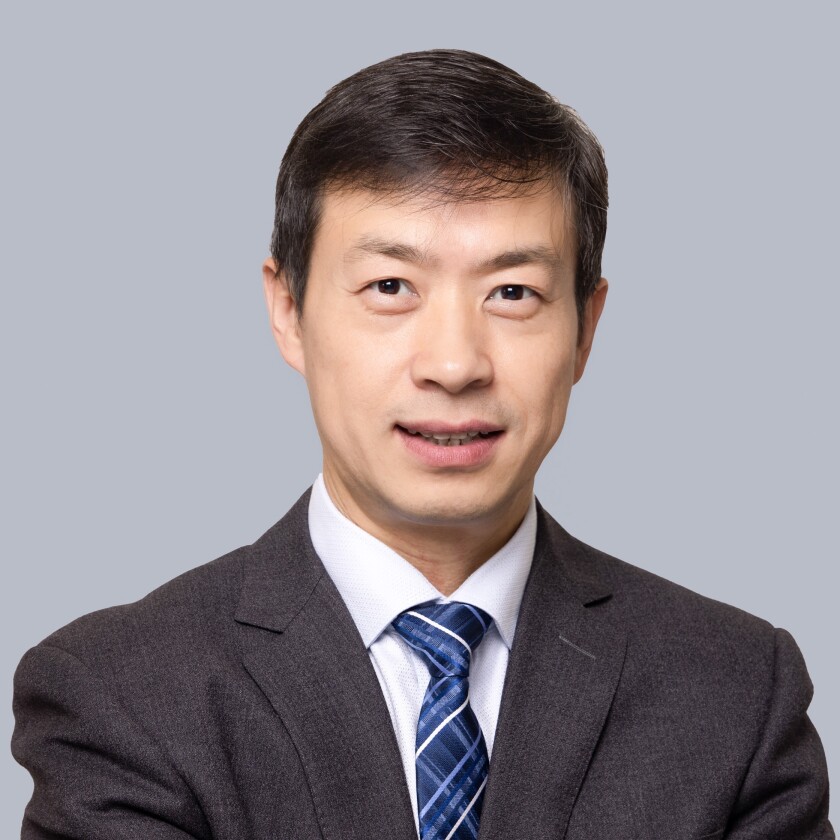Welcome to the latest instalment of Managing IP’s ‘Five minutes with’ series, where we learn more about intellectual property practitioners on a personal and professional level. This time we meet Stephen Yang, managing partner at IP March in China.
Someone asks you at a party what you do for a living. What do you say?
I am a patent attorney. Then I will explain when people have made inventions, I help them draft patent applications file them and obtain patents. When disputes arise, I help them litigate.
Talk us through a typical working day.
Depending on where I am, my typical working day could be very different.
As a managing partner, as soon as I wake up, I will find multiple messages in our firm chat and start replying. After I come into the office, colleagues will knock on my door for various questions on cases, as well as on the daily operation of the firm. I spend the majority of my time on various types of cases, which may include searches, drafting, filing, office actions, opinions, and IP dispute issues.
In recent years, I find that clients want to have video calls to discuss cases, so an increasing amount of my time is spent on video calls.
As I am the main representative of the firm, I travel more often than others. I will be either attending a conference or visiting clients.
Whether in the office or not, throughout the day, I usually have to check and reply to hundreds of emails and chat messages.
I am also responsible for marketing at the firm, so I also spend time every day posting updates on social media platforms, including firm news, legal updates, and academic articles.
What are you working on at the moment?
Several infringement cases and their related invalidation proceedings and opinion work, in the field of large machinery and medical devices. I am also working on a potential transfer of a client’s patent portfolio.
Does one big piece of work usually take priority, or are you juggling multiple things?
As service providers, we must be able to multitask. It is quite common for us to handle multiple matters of a different nature and with different time sensitivities.
It is crucial for a practitioner in the IP profession to prioritise various tasks as per appropriate criteria, such as urgency of the matter or a client’s expectation, to ensure quality of service and client satisfaction.
What is the most exciting aspect of your role, and what is the most stressful?
The most exciting aspect of my role is to see the value of our work. It always brings a sense of accomplishment when I help customers solve their problems.
The most stressful aspect is ensuring client satisfaction. This is particularly difficult when clients do not have much experience with IP practice in China and have expectations/prejudices as a result of certain assumptions, which may make sense. In this case, smooth and effective communication is crucial to ensure client satisfaction.
This not only requires an IP practitioner to convey the message in either his or her mother tongue or in a foreign language, but also to convey the nuances using that language.
Tell us the key characteristics that make a successful IP lawyer/practitioner.
A successful career entails multiple capabilities such as effective communication, knowledge of a foreign language, and science and/or legal training.
To further develop one’s IP career, such as to become a partner, additional capabilities are required, such as management skills and marketing skills.
What is the most common misconception about IP?
A certificate showing the IP right is good enough. Unfortunately, that certificate by itself does not necessarily provide the needed quality or scope of protection.
What or who inspires you?
The excellent colleagues in the IP profession, in China and abroad, always bring fresh, interesting, and different ideas and perspectives.
If you weren’t in IP, what would you be doing?
I would most likely be an engineer. I studied mechanical engineering at university, so it is a natural choice of career.
In addition, in my IP career, I worked in-house for five years at a high-tech company where I could engage with engineers and see and support their work throughout the day. I thoroughly enjoyed this experience as I see more clearly the value of the IP work I did, not to mention that it triggered my engineer gene!
IP professionals are problem solvers, and so are engineers. Therefore, I am pretty sure I would have enjoyed being an engineer.
Any advice you would give your younger self?
I would suggest spending more years in the industry either before or after commencing a career in IP. This helps an IP practitioner not only to understand more clearly the value of their IP work to the client but also to gain a different perspective so that he or she can think from the client perspective which helps with effective communication.
What is your motto in life?
I strongly believe in the motto and spirit of my alma mater, Tsinghua University. “Self-discipline and social commitment” and “Actions speak louder than words”. Both mottos have guided me to behave, survive, and excel as an IP professional in China, as well as in everyday life.










